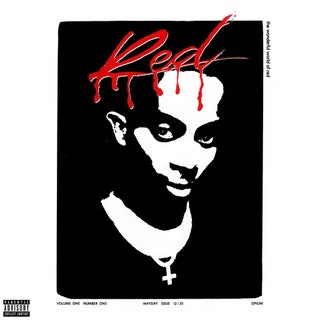Meghna Chandrasekar
Staff Writer
To many members of our generation, music is a core pillar of our identities. It’s a way to express ourselves and connect emotion to sound. With a limitless amount of musical styles, genres, and artists to listen to, certain sounds have appeared to have captured Gen Z’s hearts — while others are a lot more contentious.
Pop sensation Ariana Grande came out with her new album, Positions, back in October of last year and Gen Z soaked it right up, clocking in about 174 million streams in a little over a week after its release. And out of all the artists on Spotify and Apple Music, Drake tops the charts as the most-streamed artist of 2020, garnering over five billion streams last year alone.
Additionally, generation favorite Taylor Swift dropped two albums last year, folklore and evermore, both surprise releases that were major successes. With record-setting sales, both albums contained songs that hit No. 1 on the Billboard charts: “cardigan” and “willow.”
Other artists are more contentious among Zoomers. Some artists in the hip-hop and rap industry have accrued cult-like followings, including Lil Uzi Vert and Playboi Carti, but even these unanimously-liked artists within their genre have received backlash.
Playboi Carti’s newest album released in December of last year, Whole Lotta Red, was not well received by his fanbase initially — including fans who anticipated his project for a long time. However, over more listens of the tracks, the harsh criticism has mellowed out.
Generally, pop and pop rap music tends to resonate with our generation; fans all across the board will often find themselves listening to some Grande or Drake at least once in a while.
Popular trends in music include, but are not limited to, strong beats and baselines, electronic and techno sounds, genre-mixing, love songs, edgy, relatable and empowering lyrics, and worldwide artists.
Artists’ personal lives and the meaning of their songs are also major factors that resonate with listeners. Lizzo spreads a message of self-appreciation by sharing the lessons she has learned over the years through her upbeat music and encourages her millions of Gen Z listeners to love who they are.
In albums like DAMN and To Pimp A Butterfly, Kendrick Lamar depicts the Black experience in Compton, where Lamar grew up. With hard-hitting, poetic lyrics that provoke serious thought, in addition to catchy rhythms and beats, Lamar also appeals to many.
Certain other artists also have stereotypical listeners associated with them; music that some love is labeled “cringe” by others. For example, the American musical duo, 100 gecs, which produces unique “hyperpop” and experimental tracks of many genres, were once beloved by a select few. But as they’ve quickly gained popularity, their listeners are now viewed as more of a meme of people who believe they’re listening to underground music, but are really listening to quite a well-known group.
Furthermore, K-pop listeners, like those of popular bands BTS and Blackpink, may also be stereotyped as “cringe” as well; but their fan bases are exponentially growing and stay extremely loyal to their idols.
“Overall, we are not defined by our music tastes, nor do we have to limit ourselves to stay within a specific taste. Liking certain artists may be characterized as “basic” or “cringe” by peers, but all music should, and is, free to be enjoyed by anyone who desires to do so.”
In addition, social media platforms not only influence how our generation discovers new music and artists, but also determine which music and artists become popular. Artists now have the opportunity to go viral for their music, and often do, based on how much Gen Z likes and promotes their content. For example, well-liked artist Lil Nas X initially blew up through TikTok and now continues using platforms, like Twitter, for outreach to new fans.
Overall, we are not defined by our music tastes, nor do we have to limit ourselves to stay within a specific taste. Liking certain artists may be characterized as “basic” or “cringe” by peers, but all music should be, and is, free to be enjoyed by anyone who desires to do so. That “die-hard rap fan” you know probably jams out to some Taylor Swift in their free time, and that’s what makes discovering and enjoying music fun.
The music Gen Z listens to is diverse and genreless. While certain artists remain fan favorites, new artists and styles are constantly being introduced and popularized.












